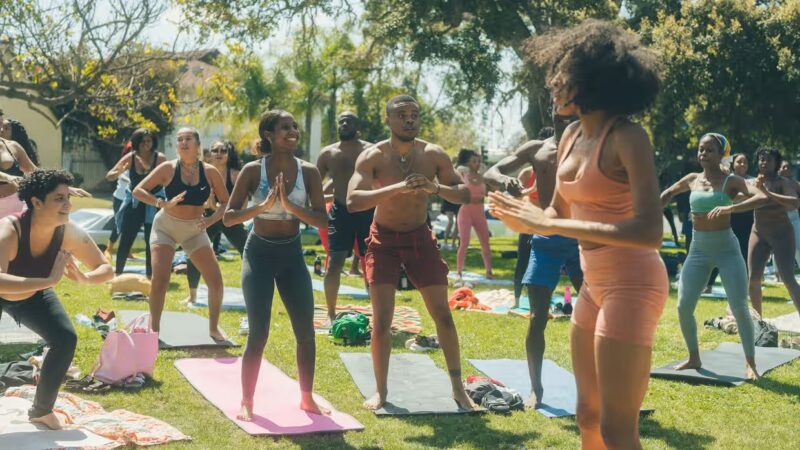Four Black founders on creating healing communities in LA: ‘so all of us can have access’
Share
Explore Our Galleries
Breaking News!
Today's news and culture by Black and other reporters in the Black and mainstream media.
Ways to Support ABHM?
By Malik Peay, The Guardian

After traversing the summit of Mount Whitney in the eastern sector of California’s Sequoia national park, Michael Washington pitches his tent, looks across the forest terrain and preps for a frosty night before his trek through 10ft of snow the following day. As the sun pierces the veil of fog obstructing their view of the great Sierra Nevada, Washington and a group of travelers embark on a “climb of a lifetime”.
In Los Angeles, where dreamers congregate and entrepreneurial spirits thrive, building community is as actionable as it is a necessity. The growing consciousness about the state of people’s mental health arose post-pandemic, specifically for communities of color as the nation grappled with a racial reckoning that has yet to provide equality. Leaders such as Washington are uplifting and making the overall health and wellness of people of color a priority. The Guardian connected with four Black founders of three organizations who have affected the cultural DNA of Los Angeles by creating movement towards interconnectedness and finding community through healing.
Washington founded Usal, a Los Angeles-sprouted outdoor community inspired by his days camping at Usal Beach in Westport, California.
[…]
A holistic approach to the outdoors is a necessity for Etienne Maurice, who curates weekly active meet-ups through his organization, WalkGood.
[…]
For those looking to nourish their souls in Los Angeles, Ritual Dinners brings folks together over feasts that unite local farmers and culinary artists with the guests consuming their food.
Read more about these leaders and their organizations.
The Black community can have a difficult relationship with the outdoors.









Comments Are Welcome
Note: We moderate submissions in order to create a space for meaningful dialogue, a space where museum visitors – adults and youth –– can exchange informed, thoughtful, and relevant comments that add value to our exhibits.
Racial slurs, personal attacks, obscenity, profanity, and SHOUTING do not meet the above standard. Such comments are posted in the exhibit Hateful Speech. Commercial promotions, impersonations, and incoherent comments likewise fail to meet our goals, so will not be posted. Submissions longer than 120 words will be shortened.
See our full Comments Policy here.